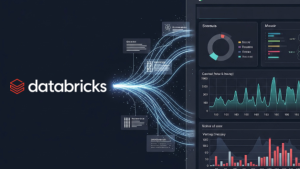Today, OpenTelemetry announced its first beta release. This release includes a specification that drives consistency across all OpenTelemetry projects, and SDKs to instrument applications written in Go, Java, Javascript, Python, and Erlang. As collaborators on the OpenTelemetry project, we’re ecstatic that it has achieved this milestone and are excited to announce support for OpenTelemetry in New Relic.
At New Relic, part of our mission is to help people create more perfect software. In this pursuit, we recognize that you can’t improve what you don’t measure. OpenTelemetry empowers people to do just that. With a single set of clean and thoughtful APIs and libraries, OpenTelemetry provides a complete telemetry system to measure software.
When you couple OpenTelemetry with the power and programmability of New Relic One, you'll have one place to quickly and accurately measure and improve your software. Ultimately, this furthers our pursuit to build a more perfect internet.
How our customers benefit
As we’ve written about before, OpenTelemetry is the merging of OpenTracing and OpenCensus into one open standard. Combining these two projects simplifies the choice for developers, ensures compatibility, and represents a huge win in the path to streamline observability. Instead of being mired in the analysis of which project to adopt, people can instead focus on building amazing and reliable software.
For those currently using OpenTracing or OpenCensus—don't worry, they're still on the roadmap. OpenTelemetry plans to provide backward compatibility for both projects.
Another major benefit of OpenTelemetry is that it's a vendor-neutral path to capturing and sending telemetry. The pluggable design of OpenTelemetry allows you to easily send your application telemetry to a variety of different backends without requiring you to modify existing instrumentation. This means you can instrument your code once and you're done. As your application evolves or your business needs change, you can reconfigure the exporters you use and start sending data elsewhere. No need for code changes.
New Relic is committed to offering customers instrumentation tools that best fit their needs and we see OpenTelemetry as an important way to satisfy customers who want this kind of freedom.
Getting started
Each SDK released by OpenTelemetry contains examples of common use cases to help you get started; SDKs are available for Go, Java, Javascript, Python, and Erlang. These examples provide useful working code that illustrate how to instrument HTTP/gRPC servers and clients, database connectors, and a whole lot more. They are a great resource to help you learn how to use the OpenTelemetry instrumentation APIs and how to configure the OpenTelemetry system, including configuring SDKs and exporters to pipe telemetry to a backend, like New Relic.
Currently, New Relic provides exporters for OpenTelemetry’s Go and Java SDKs, and we plan to add more in the future. Each exporter provides language-specific instructions on how to configure the exporter for an OpenTelemetry-instrumented codebase. After you configure an exporter, you'll be able to send any distributed traces or metrics generated by OpenTelemetry to New Relic where you can start to explore metric and tracing data specific to your application.
However, since OpenTelemetry is still in a beta phase, we don't recommend that you start using it in production. But don't let this precaution stop you from exploring how you can leverage OpenTelemetry for new projects.
How to participate in OpenTelemetry
As OpenTelemetry puts it, “Effective observability requires high-quality telemetry.” This is an idea that resonates deeply with New Relic and something we are committed to providing. But we can’t do this alone. OpenTelemetry needs your help.
Whether you are able to directly contribute by writing code, or even if it is just opening issues for bugs or pain points you encounter, we welcome all help. If none of those things seem possible, feel free to hang out with us on Gitter, we would love to hear how you are using OpenTelemetry.
OpenTelemetry support in New Relic One
Similar to the evolving nature of the OpenTelemetry project itself, New Relic is progressing our support for the project. We are committed to providing our customers with a vendor-neutral platform and user experiences that support OpenTelemetry and invite you to help us in this pursuit.
If you’re interested in helping to steer the direction of OpenTelemetry support in New Relic One, let us know and we will include you in early access opportunities.
The views expressed on this blog are those of the author and do not necessarily reflect the views of New Relic. Any solutions offered by the author are environment-specific and not part of the commercial solutions or support offered by New Relic. Please join us exclusively at the Explorers Hub (discuss.newrelic.com) for questions and support related to this blog post. This blog may contain links to content on third-party sites. By providing such links, New Relic does not adopt, guarantee, approve or endorse the information, views or products available on such sites.



